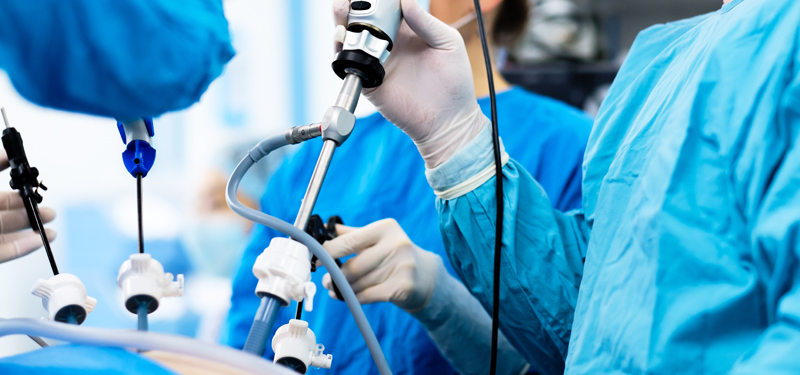
Laparoscopy is a recent advancement in the diagnostic and surgical field. It is a minimally invasive surgical procedure that enables a surgeon to look at the organs inside our body. In addition to its diagnostic value, it also operates on the organs inside the abdomen and pelvic area.
The surgeon makes three to four small incisions on your abdomen. From one incision, the surgeon inserts a laparoscope to view the area. The surgeon uses other small surgical incisions to insert small instruments to treat the problem.
Gynecology and obstetrics are a specialty that deals with the health of the female reproductive system and taking care of mother and child during pregnancy and delivery of a child.
The laparoscopic procedure is less painful. And the surgeon can perform a thorough examination of the female reproductive organ with a laparoscope (a fiber-optic tube with light and video camera).
Laparoscopic procedure in the gynecological field has numerous applications:
A surgeon recommends diagnostic laparoscopy when other tests don’t provide a confirmative cause of infertility. With the help of a laparoscope, your doctor can diagnose the underlying cause of infertilit
A surgeon recommends diagnostic laparoscopy when other tests don’t provide a confirmative cause of infertility. With the help of a laparoscope, your doctor can diagnose the underlying cause of infertility:
Laparoscopy surgery is an effective outpatient procedure that helps to treat unexplained infertility. Following are the few procedures performed by the laparoscopic surgeon to treat infertility:
Laparoscopic-assisted hysterectomy is a minimally invasive surgical procedure to remove the uterus with fewer complications and shorter recovery time.
Laparoscopic-assisted surgery provides the surgeon with great control during the operation and helps in the dissection and removal of the cancerous lesions and lymph nodes.
Your doctor can perform laparoscopy for diagnosis and treatment of pelvic conditions such as adhesion, abscess, pelvic lymph node cancer, and infection.
After either a diagnostic or curative laparoscopic procedure, you will remain in the hospital for a few hours to check any adverse reaction of anesthesia or the surgical procedure. After discharge, your doctor may suggest a few precautions
You should immediately contact your healthcare provider if you feel:
BabyScience hospital is one of the best laparoscopy hospitals in the country. Experienced doctors and staff treat each patient very carefully. The ambiance of the hospital adds to the better patient experience and comfortable stay